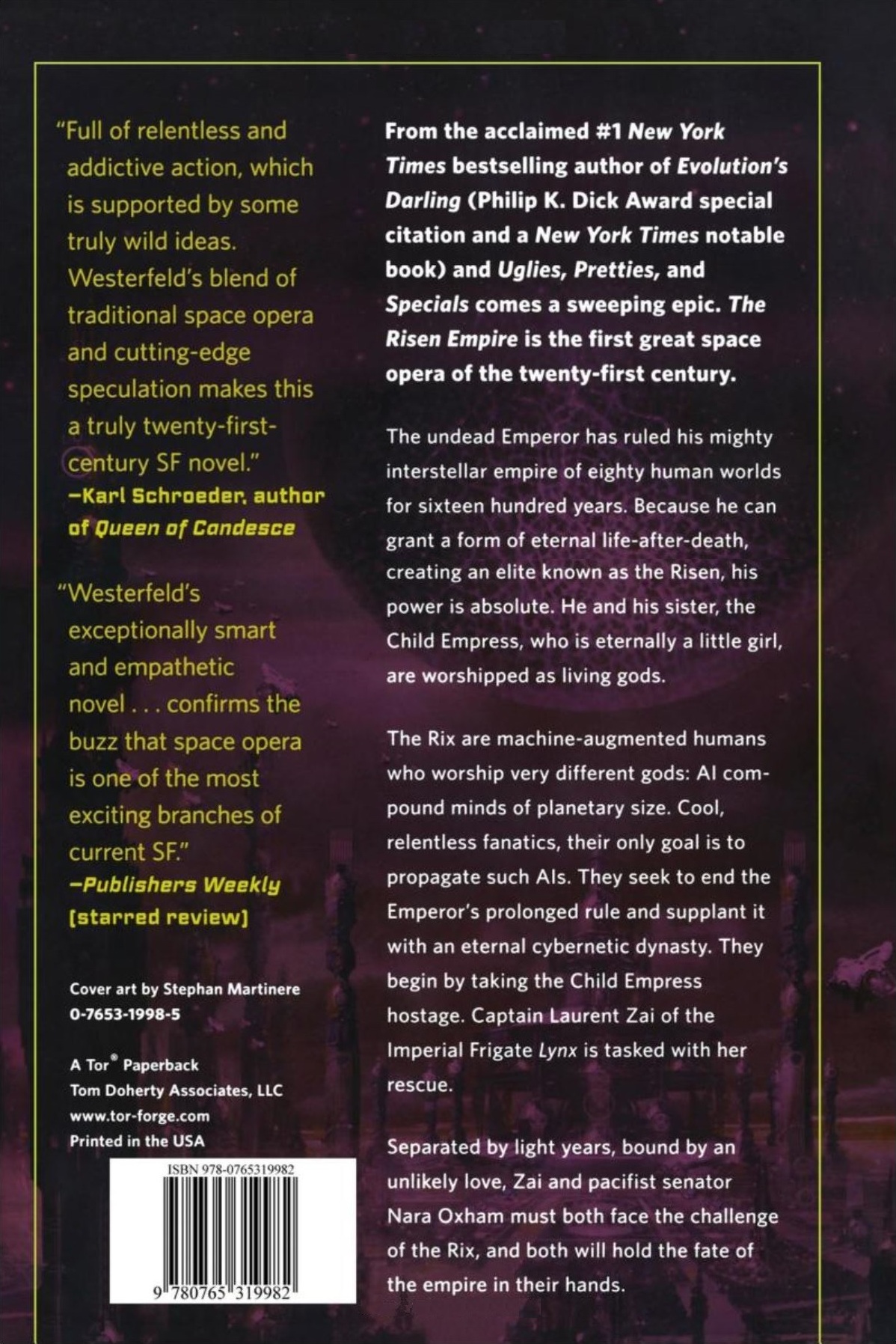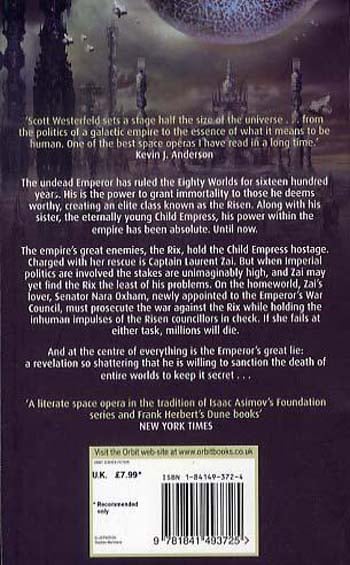

The characters, like the setting and technology, avoid traditional tropes or shift them into new forms.

However, the technology doesn't dominate the plot, which is very character-focused by space opera standards, dealing with the trauma and ambiguities of war and with understanding and romance across political divides and battle lines (again, like Saga), with an unusual and diverse cast of characters.

On this front, the novel certainly delivers, presenting imaginative and well-thought-out technological ideas like microscopic remote-piloted drones, starships that separate into widely-spread components for battle, and artificial intelligence emerging from a planet's data network. I recall reading a blog post where the author makes this clear, stating that he wanted to write cool Star Wars-style space battles but with a more realistic and thoughtful take on the technology involved. However, it breaks with a lot of the usual Feudalism In Space cliches, in particular lacking a titled nobility (the resurrected citizens form a privileged class, but not one that resembles traditional fantasy/historical nobles) and with a Senate that resembles modern-day democracies flavoured with advanced technology and clearly has more power than the Roman Senate did under the emperors. For example, the titular Empire superficially seems like a traditional anachronistic space opera setting, drawing on elements of the Roman Empire. These different elements are blended together in a way which (like the recent comics series Saga, the first volume of which I recently reviewed) avoids dissonance and promotes originality. Banks, Vernor Vinge, Alasdair Reynolds, Stephen Baxter etc.) Setting-wise it blends dystopian/cyberpunk themes (a corrupt and oppressive regime with a dark secret, destructive ideological conflicts, class divisions, artificial intelligence) with elements that wouldn't be out of place in pulpier, more old-fashioned space opera (undeath-like immortality, mind-reading, a soldier with near-bullet-time reflexes, forbidden romance) or hi-tech military sci-fi. The Risen Empire falls squarely within the wave of intelligent "space opera" (contrasting with old-fashioned Star Wars style science-fantasy and stuff-blowing-up military sci-fi) that has been around for the last 2-3 decades.

(This book selected for review via poll )


 0 kommentar(er)
0 kommentar(er)
